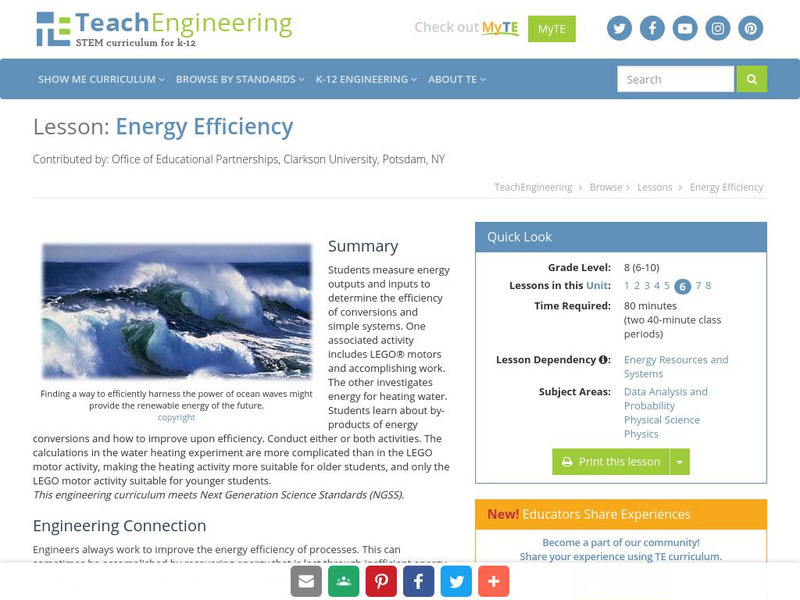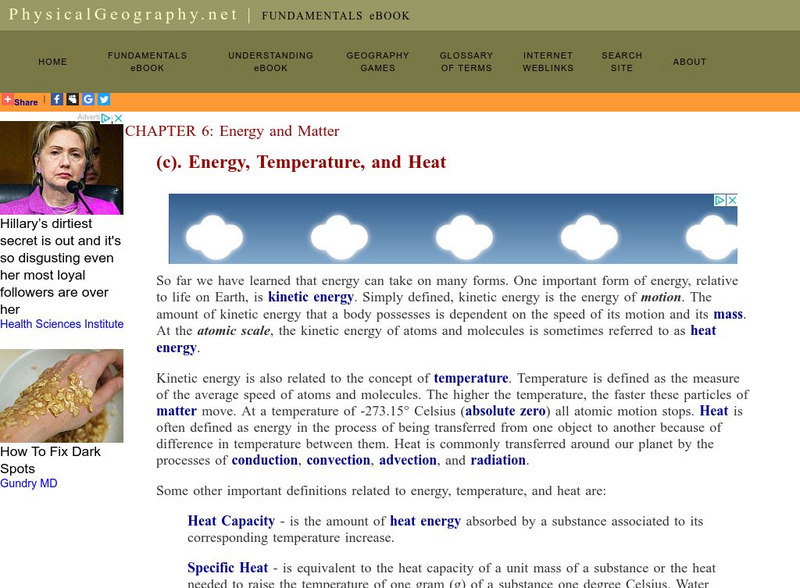TeachEngineering
Teach Engineering: To Heat or Not to Heat?
Students are introduced to various types of energy with a focus on thermal energy and types of heat transfer as they are challenged to design a better travel thermos that is cost efficient, aesthetically pleasing and meets the design...
TeachEngineering
Teach Engineering: What Is Heat?
Students learn about the definition of heat as a form of energy and how it exists in everyday life. They also learn about the three types of heat transfer as well as the connection between heat and insulation.
Scholastic
Scholastic: Study Jams! Science: Energy, Light and Sound: Heat
A video and a short quiz on heat, covering its difference from temperature, thermal energy, and the means by which heat is transferred.
Georgia State University
Georgia State University: Hyper Physics: Heat Flow to Hotter Region
Heat flow from a hot region to a cold region is described and explained. Applications of this phenomenon (specifically heat pumps and refrigerators) are discussed. Excellent graphics.
University Corporation for Atmospheric Research
Ucar: Atmospheric Processes Conduction
This simple demonstration helps students understand the concept of conduction. Site includes background information, images, and lesson plans outlining the demonstration of conduction.
Other
Characteristics of Energy and Matter
A lengthy page from the Fundamentals of Physical Geography site. Energy is distinguished from matter, and the different forms of energy are identified and discussed. Four types of heat transfer (convection, advection, conduction,...
TeachEngineering
Teach Engineering: Heat Transfer: No Magic About It
Heat transfer is an important concept that is a part of everyday life yet often misunderstood by students. In this lesson, students learn the scientific concepts of temperature, heat, and the transfer of heat through conduction,...
TeachEngineering
Teach Engineering: Energy
Through nine lessons, students are introduced to a range of energy types--electrical, light, sound and thermal-as well as the renewable energy sources of wind, hydro (water) and solar power. Subjects range from understanding that the...
TeachEngineering
Teach Engineering: Conduction, Convection, and Radiation
With the help of simple, teacher-led demonstration activities, students learn the basic concepts of heat transfer by means of conduction, convection, and radiation. Students then apply these concepts as they work in teams to solve two...
TeachEngineering
Teach Engineering: Solar Water: Heat It Up!
Students explore energy efficiency, focusing on renewable energy, by designing and building flat-plate solar water heaters. They apply their understanding of the three forms of heat transfer (conduction, convection and radiation), as...
Georgia State University
Georgia State University: Hyper Physics: Heat and Thermodynamics
Georgia State University Physics Department privides an incredibly thorough treatment of the laws of thermodynamics. Multiple pages; many informative graphics; opportunities to practice problems and receive immediate feedback.
CK-12 Foundation
Ck 12: Physical Science: Heat Conduction
[Free Registration/Login may be required to access all resource tools.] Investigates what conduction is, how it works, and gives examples of conduction.
Wisc-Online
Wisc Online: Heat and Heat Transfer Part 1
Review heat and heat transfer by solving these seven phrases! Then move on to "Heat and Heat Transfer Part 2"
Wisc-Online
Wisc Online: Heat and Heat Transfer Part 2
After completing Heat Transfer 1, review heat and heat transfer by solving these seven terms.
Colorado State University
Csu: Heat Transfer Mechanisms
An excellent page from the Colorado State University with a heavy mathematical emphasis. Each form of heat transfer--conduction, convection, and radiation--is defined, compared, and contrasted. Mathematical equations governing the rates...
Colorado State University
Colorado State University: Heat Transfer Mechanisms
An excellent page from the Colorado State University with a heavy mathematical emphasis. Each form of heat transfer--conduction, convection, and radiation--is defined, compared and contrasted. Mathematical equations governing the rates...
Georgia State University
Georgia State University: Hyper Physics: Heat Engine Concepts
An indexing page for the HyperPhysics site. The page contains a concept map of links to a variety of other pages which discuss concepts related to heat engines. All pages contain informative graphics and excellent explanations.
Georgia State University
Georgia State University: Hyper Physics: Heat Convection
Using understandable words and exceptional graphics, this page describes the transfer of energy by means of the convection process. Contains several links to related topics.
Georgia State University
Georgia State University: Hyper Physics: Heat Engine Cycle
The heat engine cycle is defined and discussed. So pressure-volume diagrams are introduced and their use in depicting the cycles of a heat engine is demonstrated. Informative graphics are accompanied by reason-filled explanations.
Science Education Resource Center at Carleton College
Serc: The Three Bears Heat Investigation It's Just Right
This activity uses the story of the three bears as a way to investigate conduction, convection, radiation, and insulation properties. It also could be used to describe the laws of thermodynamics and conservation of energy.
State University of New York
State University of New York: Heat Transfer Between Substances
The following simulation assesses students understanding of thermal energy, transfer and equilibrium.
TOPS Learning Systems
Tops Learning Systems: Top Science: Conduction and Convection [Pdf]
Experiment investigating conduction and convection of heat in water.
TeachEngineering
Teach Engineering: Energy Efficiency
Students measure energy outputs and inputs to determine the efficiency of conversions and simple systems. One associated activitiy includes Lego motors and accomplishing work. The other investigates energy for heating water. Students...
Other
Fund. Of Phys. Geography/energy, Temperature, and Heat
A page describing (in part) the distinction between energy, temperature and heat. Includes a graphic illustrating the quantity of energy needed to transform water between various states. Methods of thermal energy transfer (convection,...
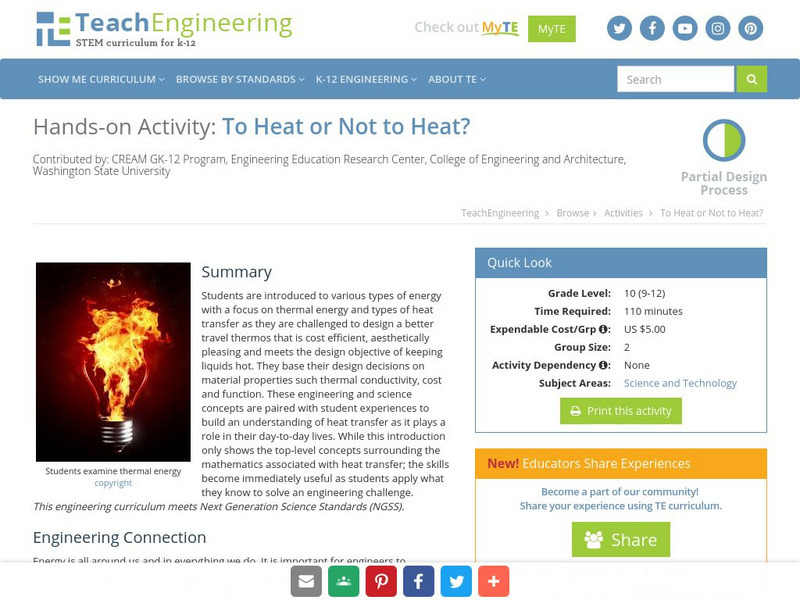

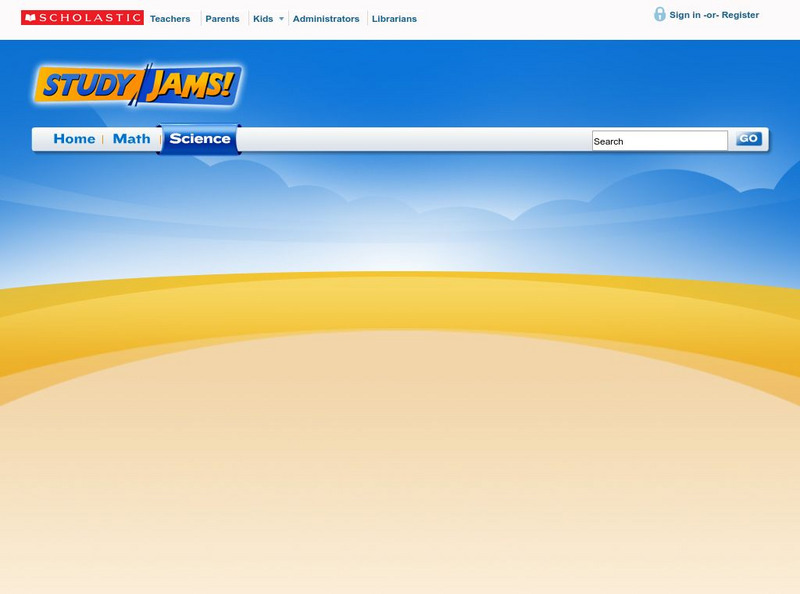
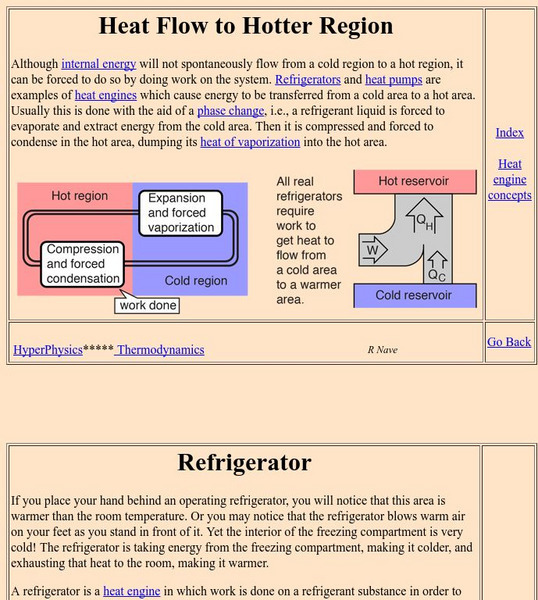










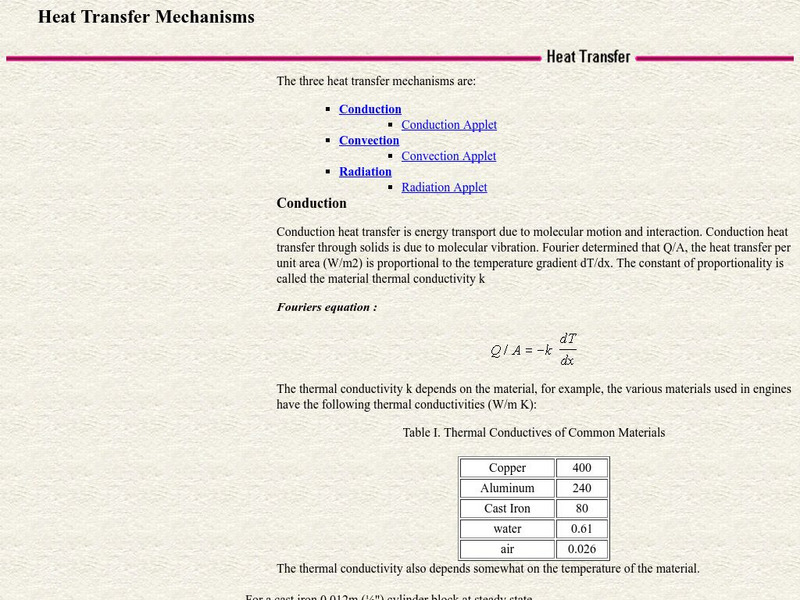
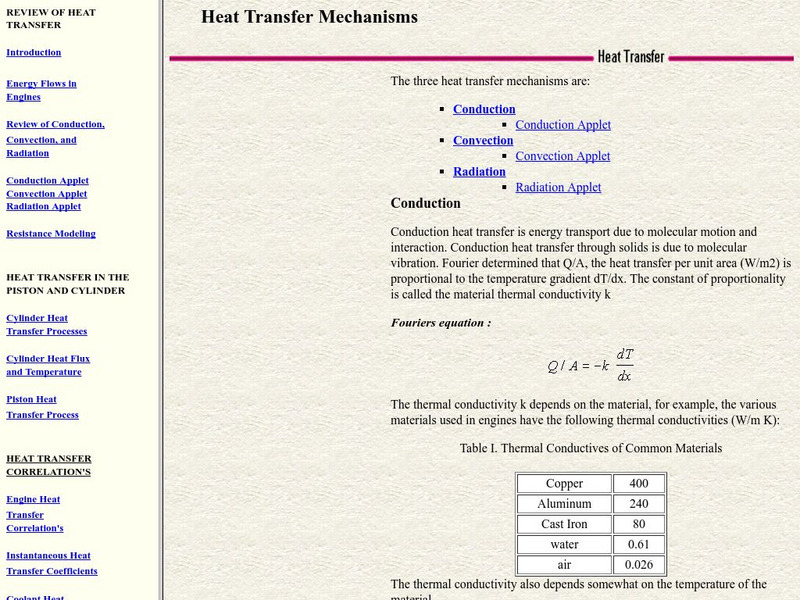
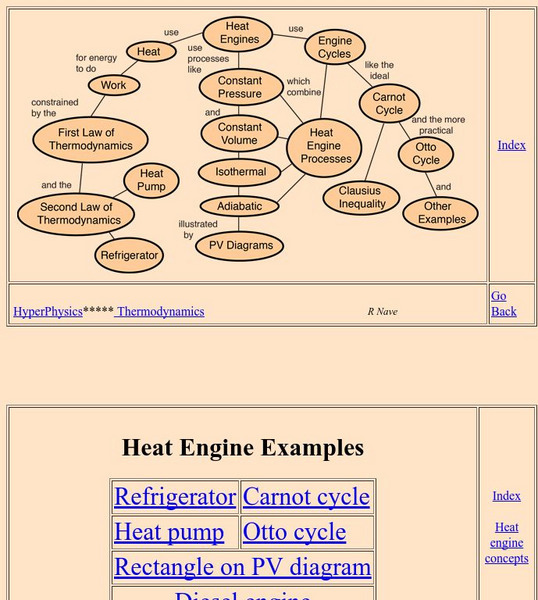
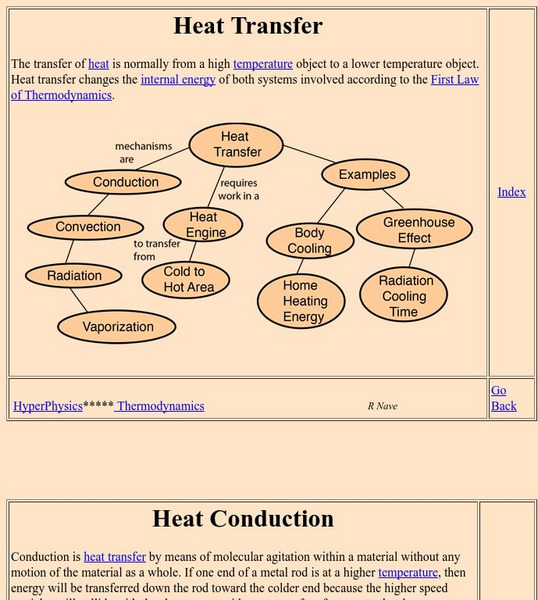

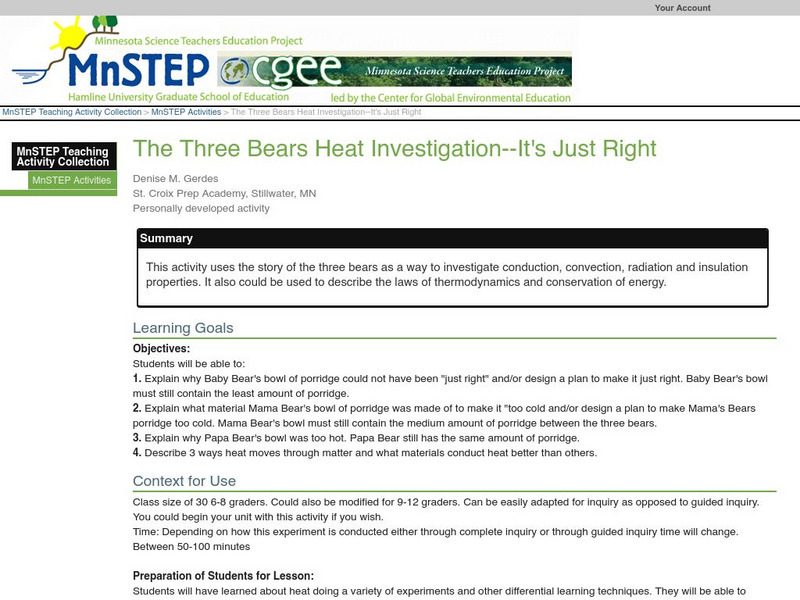

![Tops Learning Systems: Top Science: Conduction and Convection [Pdf] Activity Tops Learning Systems: Top Science: Conduction and Convection [Pdf] Activity](https://static.lp.lexp.cloud/images/attachment_defaults/resource/large/FPO-knovation.png)
